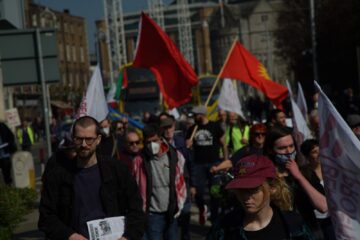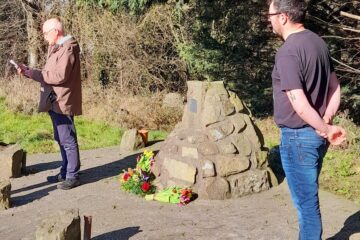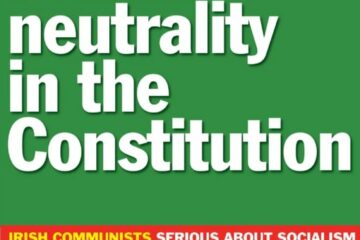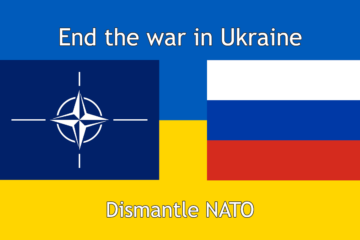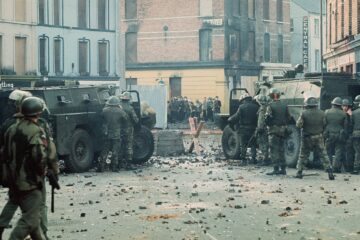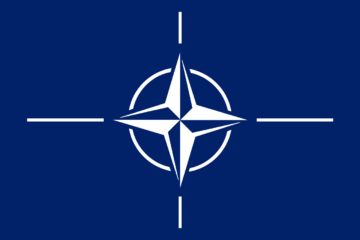17 March 2009
The recent armed attacks by republican paramilitary groupings that resulted in the killing of two British soldiers and one member of the PSNI and injury to a number of workers doing their job need to be condemned in the strongest possible terms. This is a retreat into failed methods of struggle that the last forty years have shown to be nothing but a cul de sac. It is a barren strategy that will lead us nowhere except to further deaths, imprisonment, unnecessary suffering, and division.
We appeal to the individuals and organisations that carried out these and other attacks to think again. The recent mobilisation of working people by the Northern Ireland Committee of the ICTU in a number of cities and towns is to be welcomed as an important statement by working people that they do not want a return to violence, that the new political institutions set up under the Belfast Agreement must be made to work, and that no group has the right to abrogate the will of the people.
As history has shown, it will only exacerbate the already difficult sectarian divisions within Northern society. The only beneficiaries of these killings and the return to military actions are those forces that have consistently opposed the Belfast Agreement, the loyalist forces that have refused to decommission their weapons and those who continue to oversee and expand the whole security apparatus of the British state still operating within the North.
The individuals and organisations who planned and carried out these and other attacks are prisoners of a historical strategy that has failed time out of number and will surely fail this time as well.
The Communist Party of Ireland, as an anti-imperialist party committed to securing national unity and sovereignty, calls upon those forces that claim to act in the name of republicanism to stop these futile and counter-productive attacks. We repudiate their approach as tactically and strategically futile and both anti-people and anti-republican.
While the condemnation of these armed attacks is important in itself, there is also a great responsibility on those forces that support the Belfast Agreement to push forward to secure its full implementation.
The Belfast Agreement and the institutions deriving from it are not the end of the process, nor the end of struggle, but rather they provide a forum from which new struggle and new demands must be made. At this time it provides a better base towards which the people’s demands and aspirations can be directed.
The alienation felt by many working-class youths needs to be addressed urgently in order to give hope and a belief that politics can deliver the much-needed change. Progressive forces should consider the best way to allow young people to vent their frustration and articulate their demands in a meaningful and non-patronising forum. Their natural anti-state instincts need to be harnessed into a real, coherent organised force to challenge the status quo on political grounds that unite working people rather than dividing them, to push forward the radical demands and solutions that are required.
It is urgent that we see the establishment of the Civic Forum as another democratic forum to allow the representatives of people’s organisations—a platform from which all the concerns of the people can be expressed. It is only through the fullest expression of democracy and accountability that reactionary politics can be fully undermined. Democracy is the only means of bringing greater unity between Catholic, Protestant, and Dissenter.
The people of the North of Ireland are marginalised three times in the political, economic and social spheres. They have neither the means nor the ability to change or influence the economic and social policies of the British government; they cannot change or influence the policies imposed by Brussels; nor can they influence or have an input into the policies of the Irish Government. Greater and more profound democracy is the only means whereby the triple marginalising that the people of the North experience can be overcome.
The growing and deepening economic and social crisis being experienced by all working people in our country, north and south, can be overcome only with greater unity among all workers, by securing greater economic and social integration between both parts of the country, and by the development of an alternative economic and social strategy for the whole of the country.



